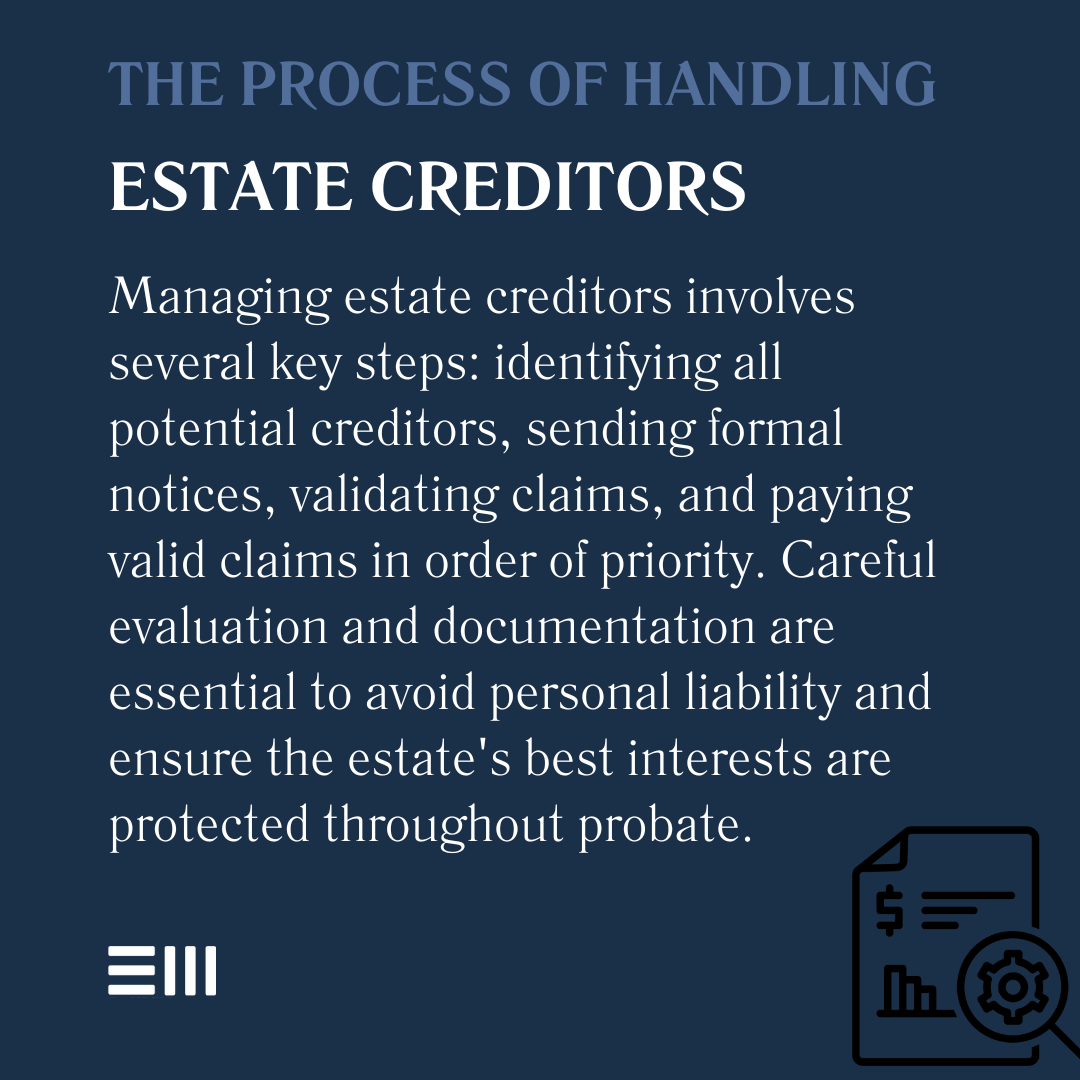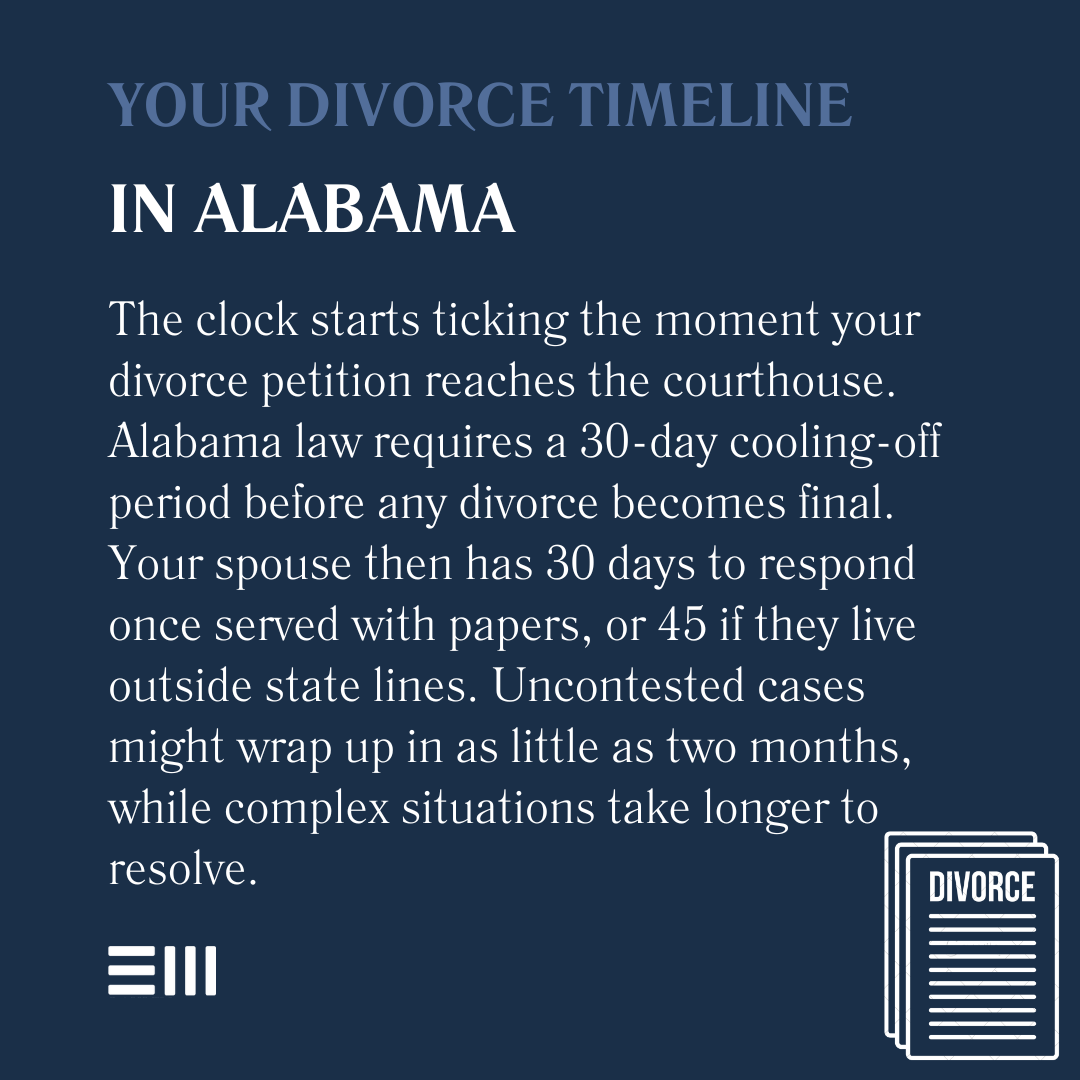In the midst of grief, families often face an unexpected challenge: creditors seeking payment from their loved one's estate.
From major financial institutions to local medical providers, these claims can quickly overwhelm those responsible for settling the estate.
While some claims deserve prompt payment, others require careful scrutiny or may even warrant rejection.
Understanding how to properly handle estate creditors can mean the difference between preserving an inheritance and watching it diminish through unnecessary payments.
The complexity of managing estate creditors has only increased in recent years as digital assets and online accounts add new layers of responsibility for estate administrators.
What to Know About Estate Creditors
The landscape of estate administration has evolved significantly with the rise of digital banking, online creditors, and complex financial instruments.
Modern estate representatives must navigate both traditional debts and emerging forms of financial obligations while ensuring compliance with rapidly evolving state and federal regulations.
When someone passes away, their outstanding debts don't simply disappear. As an executor or administrator of an estate, properly identifying, notifying, and settling with creditors forms a critical part of the probate process.
Let's explore the essential steps and requirements for handling estate creditors effectively.
The Process of Handling Estate Creditors
The journey of managing estate creditors involves several carefully orchestrated steps. Before diving into specific actions, it's important to understand that each state has its own timelines and requirements for this process.
Success in managing estate creditors often depends on implementing a systematic approach to identification, verification, and settlement of claims.
Here's what you need to know:
- Identify and locate all potential creditors;
- Send formal notice to known creditors;
- Publish notice for unknown creditors;
- Review and validate creditor claims;
- Pay valid claims according to priority;
- Document all communications and payments;
- Object to invalid claims within legal timeframes; and
- Maintain detailed records of all transactions.
Understanding and following these steps helps ensure compliance with legal requirements while protecting the estate's interests.
Remember that each creditor claim must be carefully evaluated and documented, as improper handling can lead to personal liability for the estate representative. Maintaining organized records of all creditor-related activities provides crucial protection throughout the probate process.
Rights and Responsibilities of Estate Representatives
Managing an estate comes with specific legal obligations and protections. Before taking action on creditor claims, understand your role in the process.
Estate representatives serve as fiduciaries, meaning they must act with the highest degree of care and loyalty in managing the estate's affairs. This position carries both significant responsibilities and important legal protections designed to facilitate proper estate administration.
Key responsibilities include:
- Acting in the estate's best interest;
- Maintaining accurate financial records;
- Following state-specific probate laws;
- Meeting all legal deadlines;
- Communicating with beneficiaries;
- Properly prioritizing creditor claims;
- Protecting estate assets; and
- Filing required court documents.
Fulfilling these responsibilities helps protect both the estate and you as the representative from potential legal issues.
Estate representatives who understand and diligently execute their duties create a strong foundation for successful probate administration. Regular consultation with legal professionals can provide additional guidance and protection throughout the process.
Timeline for Creditor Claims
Alabama establishes specific deadlines for creditor claims in probate. Understanding these timelines helps ensure proper estate administration.
Timing requirements in probate serve multiple purposes: They provide certainty to creditors about when they must act, protect beneficiaries from indefinite delays, and help estate representatives efficiently manage the administration process.
Missing key deadlines can have serious consequences, including personal liability for the estate representative.
Common deadlines include:
- Notice to creditors (usually 30-90 days);
- Creditor claim filing period (typically 3-6 months);
- Claim review and response time (often 30-60 days);
- Payment processing period (varies by state);
- Final accounting submission (state-specific); and
- Estate closing requirements (varies by jurisdiction).
Meeting these deadlines helps prevent delays and potential legal complications in the probate process.
Many states impose strict penalties for missed deadlines, potentially including personal liability for the estate representative. Working with experienced legal counsel can help ensure all timing requirements are met while protecting the interests of both the estate and its beneficiaries.
Frequently Asked Questions About Estate Creditors in Alabama
Navigating estate creditor claims in Alabama often raises numerous questions.
Here are answers to common concerns that arise during the probate process.
Common Questions About Alabama Divorce
Understanding frequent concerns about divorce filing in Alabama helps clarify the process and reduce anxiety about the next steps.
These questions represent the most common concerns raised by individuals beginning the divorce process.
How Long Do Creditors Have to Make Claims Against an Estate?
The timeframe varies by state, but typically ranges from 3 to 6 months after receiving notice. Some states allow up to a year for creditors to file claims.
Can Creditors Take Money From Life Insurance Proceeds?
Generally, life insurance proceeds pass directly to named beneficiaries and are protected from creditor claims against the estate.
What Types of Debts Must Be Paid First?
Most states follow a similar priority order:
- Funeral and burial expenses;
- Estate administration costs;
- Federal and state taxes;
- Medical expenses from the last illness;
- Other government debts; and
- All other creditor claims.
This priority system ensures fair treatment of creditors while recognizing that certain obligations, particularly those related to the deceased's final arrangements and estate administration, deserve special consideration.
Estate representatives must carefully follow this order of priority when paying claims, as deviating from it could result in personal liability.
Are Family Members Responsible for the Deceased's Debts?
Generally, no. Heirs are not personally responsible unless they co-signed on the debt or are required to pay under state law.
Understanding these common questions helps estate representatives navigate the probate process more effectively.
However, each estate's situation is unique, and specific circumstances may require specialized legal guidance. Working with experienced probate attorneys can help ensure proper handling of creditor claims while protecting the interests of all parties involved.
Protecting Estate Assets
Proper asset protection starts with understanding what belongs to the estate and what doesn't. This knowledge helps ensure fair treatment of both creditors and beneficiaries.
Modern estates often include a complex mix of traditional and digital assets, requiring estate representatives to develop comprehensive protection strategies.
The rise of cryptocurrency, online investment accounts, and digital businesses has added new dimensions to asset protection requirements.
Consider these key aspects:
- Identifying probate vs. non-probate assets;
- Documenting all estate property;
- Securing valuable items;
- Maintaining proper insurance coverage;
- Keeping detailed inventory records;
- Monitoring estate accounts;
- Following state valuation requirements; and
- Protecting digital assets.
Understanding these elements helps maintain estate value while satisfying legitimate creditor claims. Proper asset protection requires ongoing vigilance and regular review of estate holdings.
Establishing strong protective measures early in the probate process helps ensure fair treatment of both creditors and beneficiaries while preserving the estate's value throughout administration.
Get Expert Guidance for Your Estate Matter
Managing estate creditors requires careful attention to detail and understanding of complex legal requirements.
Our experienced team can help you navigate these challenges while protecting your interests. With decades of combined experience in probate administration and creditor negotiations, we provide comprehensive support throughout the entire process.
Contact us today for a confidential consultation and discover how we can assist with your probate matters.
Our team stays current with evolving probate laws and procedures to ensure your estate administration proceeds smoothly and efficiently.


